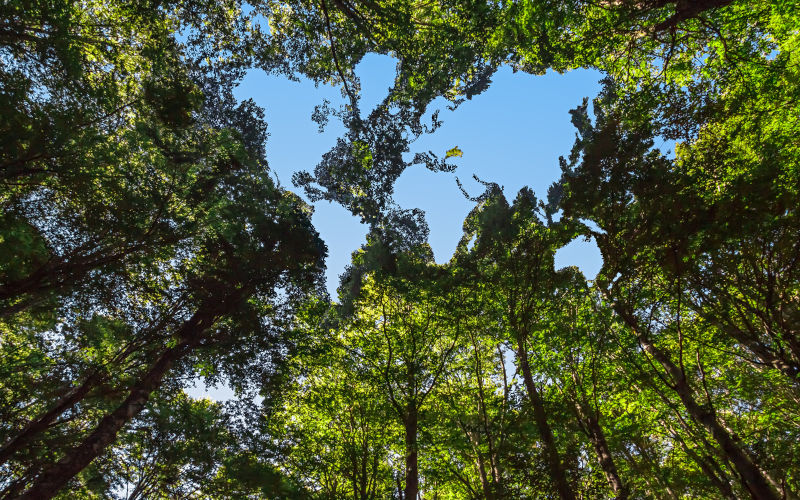
Like the environment itself, discussions of our collective future are becoming heated. They are also contradictory, polarised and – in my case, at least – increasingly pessimistic.
No doubt my views about climate change say as much about me as they do about the problem itself. Given incontrovertible and inescapable evidence of climate change, however, that doesn’t make pessimism irrational. On the contrary, an army of climate scientists and a growing number of policy makers, activists and commentators are agreed that things don’t look good, especially in the absence of frankly unimaginable changes in the way international politics is conducted and the global economy operates.
The other thing that there’s growing agreement about is the unravelling of ‘American hegemony’ and the so-called rules based international order. It’s not obvious what’s going to replace it, but it probably isn’t going to be an earnest, scientifically informed, open-ended discussion about how to save the planet amongst the current generation of international leaders. Even without an old-fashioned interstate war in Europe, the thought of Biden, Xi, Modi and Mad Vlad getting together to solve the greatest collective action problem the human race has ever faced looked a bit unlikely, to put it delicately.
But before we rush to blame Biden et al though, it’s worth asking whether anyone could ever have figured out what to do about too many people enjoying – or desiring – what’s been called the ‘imperial mode of living’ Global Environmental Politics and the Imperial Mode of Living: Articulations of State–Capital Relations in the Multiple. While it’s fashionable (and not inaccurate) to blame the ‘Global North’ or the West for their selfishness, thoughtlessness and ruthless exploitation of the rest, the reality is that many in the South would like nothing better than to join in.
Exhibit A in this case is the remarkable, historically unprecedented rise of China and India. Paradoxically enough, of course, while lifting millions out of grinding poverty is undoubtedly something to be celebrated, it comes with a possibly unpayable environmental price tag. The planet simply doesn’t seem big enough to absorb the impact of the relatively fortunate few who live lives of luxury, let alone the billions that don’t but would like to.
For the thoughtful types amongst us, this is a source of great angst, despite – or because of – the fact that we can do next to nothing to change things. Nor are we entirely to blame. When our ancestors were developing capitalist incentive structures and discovering the technical innovations that fuelled the industrial revolution, the likely material benefits looked likely to outweigh any possible environmental problems. Indeed, it wasn’t until the 1960s that anyone began to connect the dots in a serious way, and even then, it wasn’t obvious what to do about it.
It still isn’t. As Mark Diesendorf has pointed out, there may be an irreconcilable incompatibility between an expansionary economic system and sustainable environmental outcomes. ‘Degrowth’ may be one response, but it is unlikely to be accepted by powerful economic interests in the North, or even more fundamentally the ‘bottom billion’ who are quite simply never, ever going to experience the proverbial good life while it lasted. Little wonder so many of the world’s poor and/or ambitious risk everything to escape lives of hopeless degradation and insecurity.
I realise it’s not regarded as constructive or helpful to simply provide a litany of woe without offering possible solutions. To be fair, there is no end of plucky optimists (or self-interested captains of industry) offering one sort of technological fix or another. Take your pick if it makes you feel better. Perhaps something really will turn up.
But it is a sign of the times that a more ‘realistic’ solution might look a lot more like socialism than free market capitalism. Given that any sustainable response to climate change would seem to necessitate a more equitable distribution of the world’s finite resources with all the implications that has for the lifestyles and behaviour of those in the powerful North, though, I think we can safely rule that out, too.
More immediately, if we can’t even do anything creative and useful in what really is the luckiest country in the world we might as well give up. If Albanese is too frightened to take on the coal lobby, he’s unlikely to go to the next election promising to transfer significant wealth to the South, or even promising to take in climate refugees from our ‘Pacific family’. Democracy’s undoubtedly another admirable invention, but there are limits to what even the most enlightened politician can do – supposing we actually had one, of course. In the meantime, wasting our limited resources on military hardware is the preferred option when pursuing security in the absence of imaginative alternatives.
It’s not necessary to be a ‘neo-Malthusian’ to think that there really are limits to growth and the numbers of people who can live like we do. Yet lifting people out of poverty and giving them the chance to live an enjoyable and relatively secure life still seem like reasonable ambitions. Perhaps we have to face the possibility that it is simply not possible on the scale required. Perhaps it never was.




